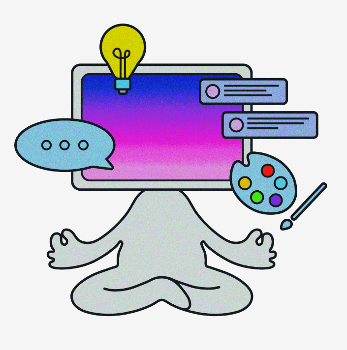As part of the Incubator for Transdisciplinary Futures, faculty members across Arts & Sciences are working together to decode the relationship between technology and the mind.
Can artificial intelligence help us better understand the mechanics of the human brain?
How can educators deploy virtual and augmented reality in the classroom?
What does modern mindfulness look like in a screen-driven society?
Faculty members across Arts & Sciences are collaborating to answer these questions and more as part of the Incubator for Transdisciplinary Futures (ITF), a signature initiative of the Arts & Sciences Strategic Plan.
“The Incubator for Transdisciplinary Futures is about supercharging novel and wild collaborations to pursue transformative research, design new learning experiences, and show us pathways for the university of the future,” said William Acree, co-director of the initiative with Betsy Sinclair. “It provides an incredible institutional framework for such innovation across Arts & Sciences, as well as across the university.”

Among the 14 research teams currently funded by ITF, three multiyear clusters are addressing an increasingly critical issue: the relationship between technology and the mind. Drawing on the expertise of several disciplines, researchers are exploring the nature of human understanding, the exciting (and frightening) future of immersive technology, and the renewed relevance of an ancient technology of perception.
“The faculty members working on these projects epitomize our values of convergence, creativity, and community,” said Feng Sheng Hu, dean of Arts & Sciences. “ITF positions Arts & Sciences to be a leader in transdisciplinary research and paves the way for groundbreaking educational opportunities.”